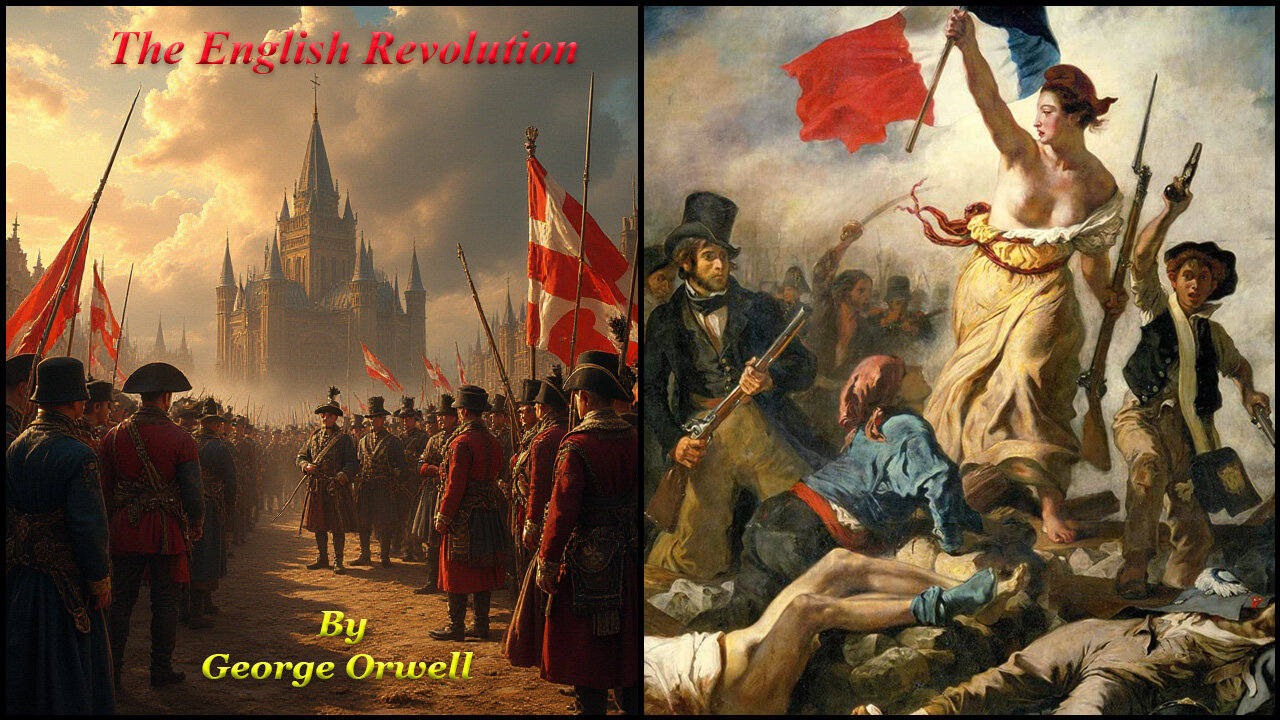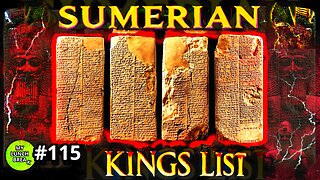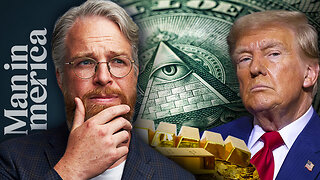Premium Only Content

'The Lion and the Unicorn' Part 3 - 'The English Revolution' (1941) by George Orwell
In this essay Orwell outlines his vision for a "revolution" that is uniquely English. He believes that socialism must be adapted to fit the traditions and culture of the English people, rather than being imposed in a rigid or doctrinaire form. He advocates for a democratic socialism that respects English customs while striving for social justice.
Key Reforms: Orwell suggests a number of reforms, such as the nationalization of key industries, the abolition of hereditary privileges, and a more equitable distribution of wealth. He sees these changes as necessary for England to survive and thrive both during and after the war.
Unity of the Working Class and Middle Class: Orwell emphasizes the need for solidarity between the working class and the progressive elements of the middle class. He believes that such a coalition is essential for implementing social change and ensuring that the power of the old ruling class is dismantled.
Orwell’s essay is a blend of patriotic sentiment and radical political thought. He argues that the English people's love for their country is not at odds with socialism; rather, it is a foundation upon which a fairer and more equal society can be built. Orwell sees World War II as a turning point that could force England to address its deep-seated inequalities and move towards a democratic form of socialism that aligns with its national character.
-
 3:14:51
3:14:51
Barry Cunningham
7 hours agoTRUMP WEEKEND BRIEFING: THIS IS THE REAL THREAT TO AMERICA! (FYI...IT'S NOT WHO YOU THINK!)
27.2K25 -
 2:04
2:04
Sean Unpaved
12 hours ago $5.18 earnedUnpaved w/Sean Salisbury
63.9K4 -
 50:39
50:39
The Connect: With Johnny Mitchell
9 hours ago $1.15 earnedInside The War For Tijuana: How Mexican Cartels Turned Tijuana Into World's Most VIOLENT City
15K3 -
 12:34
12:34
TimcastIRL
9 hours agoWaPo Staffers QUIT Over Bezos’ Change To Opinion Section, Liberal Media MELTING DOWN
79K52 -
 24:55
24:55
MYLUNCHBREAK CHANNEL PAGE
1 day agoThe Sumerian King's List
96.1K36 -
 1:37:51
1:37:51
Man in America
13 hours agoIs Trump Using Gold to Dismantle the City of London Banking Cartel? w/ Eric Yeung
40.6K6 -
 33:50
33:50
The Why Files
8 days agoCryptids Vol. 3: The Antarctic Cover-up | Predators Beneath the Ice
115K135 -
 27:11
27:11
Stephen Gardner
12 hours ago🔥Trump Zelensky Meeting ends in IMPEACHMENT | MUSK shares major dirt on Joe Rogan Podcast
118K270 -
 2:40:23
2:40:23
Jewels Jones Live ®
3 days agoTRUMPARENCY | A Political Rendezvous - Ep. 112
109K30 -
 1:13:14
1:13:14
Michael Franzese
12 hours agoEmergency Livestream: Zelenskyy vs Trump, DOGE, Epstein Files, Elon Musk
129K92